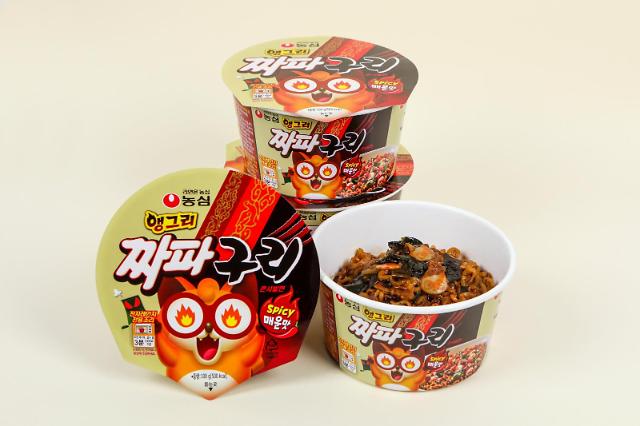
[Yonhap News Photo]
SEOUL -- Nongshim, a food and beverage company in South Korea, saw a whopping 101 percent increase in first-quarter operating profit thanks to strong demands for ramyeon instant noodles caused by a pandemic and the unexpected popularity of "Jjapaguri," a mixture of two different instant noodles, that was translated into Ram-don in Parasite, the Oscar-winning film directed by Bong Joon-ho.
Nongshim's consolidated first-quarter sales rose 16.8 percent from a year ago to 687.7 billion won ($560 million). Operating profit was up 101 percent to 63.6 billion won, the company said in a regulatory filing on Friday. Revenue generated by overseas outlets soared 25.9 percent to 167.7 billion won.
Nongshim attributed its good performance to robust sales of ramyeon and two other instant noodles used to make Ram-don, the witty brainchild of film subtitle translator Darcy Parquet to help the understanding of the non-Korean speaking audience around the world, that meticulously illustrated the gap between high and low class families in Parasite.
Parasite used Ram-don to depict the rich-poor gap. In the film, the rich housewife asks her housemaid to prepare a bowl of Ram-don for her son while driving back from a camping trip. Not exactly knowing what the recipe was, the housemaid rummages through the kitchen, imagining what Ram-don is, to finally create a bowl of noodles. It was a combination of Chapaghetti, an instant black bean sauce noodle, and Neoguri, an instant noodle with spicy seafood soup.
Copyright ⓒ Aju Press All rights reserved.



